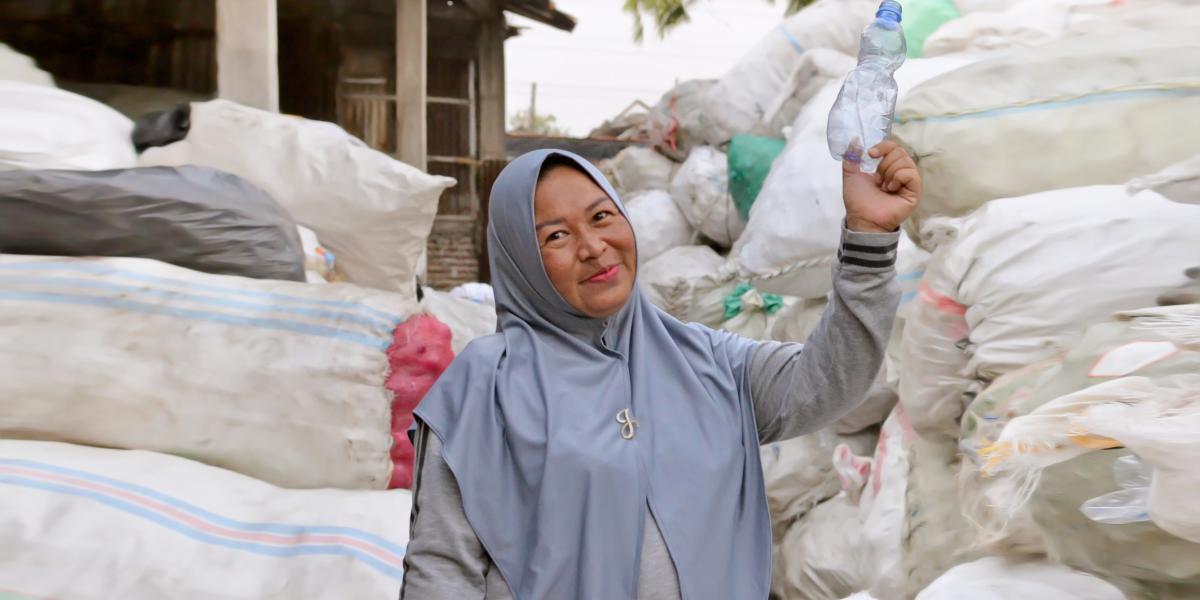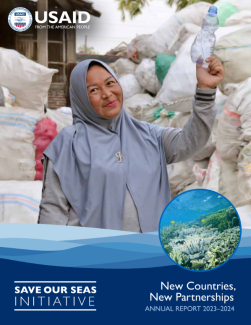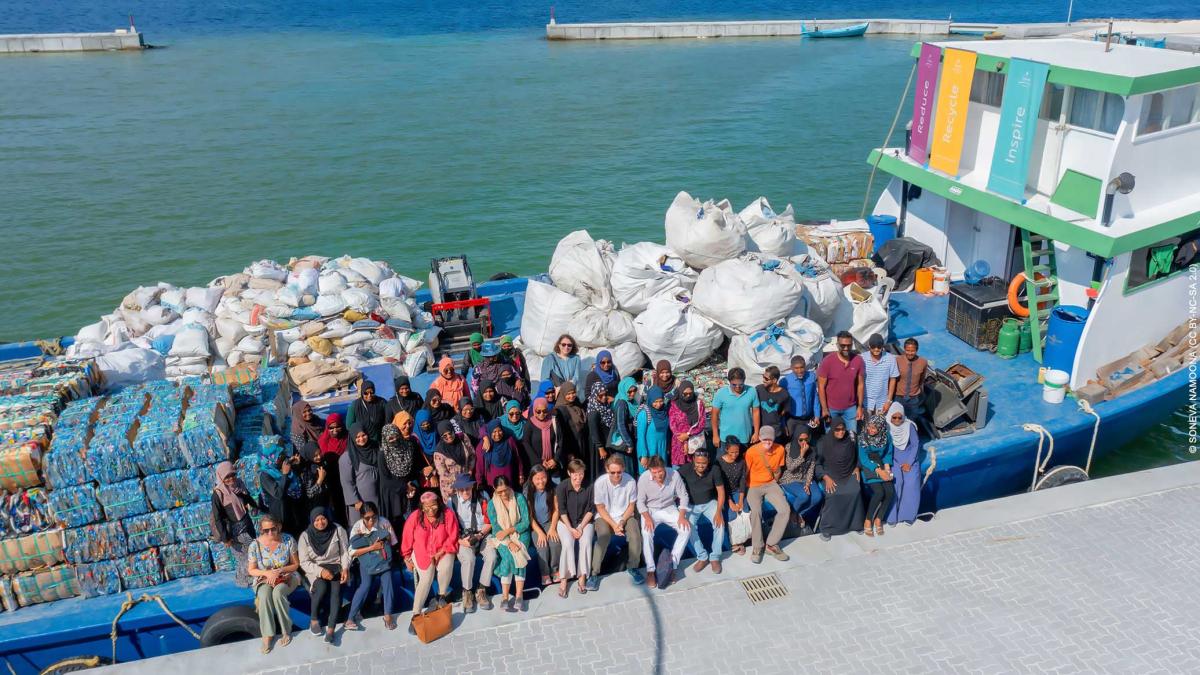
The best way to tackle the ocean plastic pollution crisis is to prevent plastic from entering the ocean in the first place. Most plastic pollution arrives in the ocean from mismanaged waste, much of it from rapidly urbanizing cities along rivers and in coastal areas. In low-income countries, up to 90 percent of waste is openly dumped or burned because the countries lack effective solid waste management systems. World-wide, nearly two billion people (or one in four) have no way of disposing of waste properly.
In 2020, the U.S. Congress passed the Save Our Seas 2.0 Act to accelerate efforts to combat the complex challenge of ocean plastic pollution. This bipartisan legislation directed USAID to craft strategies and implement programs to prevent ocean plastic pollution. The global Save Our Seas Initiative, launched in 2022, supports comprehensive on-the-ground programming in 14 key countries that account for 40 percent of all global mismanaged plastic waste. Total funding for the Save Our Seas Initiative has reached $138.7 million to date (in FY 2021, FY 2022, and FY 2023 funding).
In the second year of the Save Our Seas Initiative, USAID accelerated the creation of new country partnerships and programs to fight ocean plastics. USAID’s focus is on setting up and maintaining long-term relationships with country governments who are central partners in solving this global problem. We also focus on joining forces with other actors, namely the private sector, to expand the effectiveness and reach of limited public sector resources. The goal of the Save Our Seas Initiative is to end the flow of plastic pollution into the ocean by 2040.




